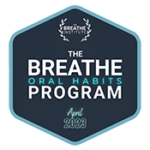Losing baby teeth
As parents and caretakers, we often experience just as much discomfort as our little ones do when it comes to teething. From long nights of frequent wakings for teething gel, to a freezer full of popsicles to sooth the gum inflammation, we are more than happy to see that last tooth pop through their little gums! But, after all that hard work, those pesky teeth then begin to fall out. Just when you think you have this tooth-sprouting business done with, you hear, “my tooth is loose!” and it’s a whole new game!
Those words represent another big milestone in your child’s life. Baby teeth have to fall out to make way for permanent teeth to grow; this process can last six or more years from start to finish. Most kids are probably excited to feel their loose, wiggly tooth, and some may worry and wonder if it will hurt. Every child is unique and will react in either fashion. Your response should be as unique as theirs: reassuring them that this is a normal, necessary process, and even showing excitement for them.
First things first
 Your child’s 20 baby teeth, which typically come in by age 3, usually fall out in the order in which they came in. On average, kids begin losing teeth at age 5 or 6, but some can lose the first tooth as early as 4 or as late as 7. Since the lower center teeth (lower central incisors) are usually the first to erupt, that means they are usually the first to go as well. The top center pair is next. The middle teeth are usually the first to go (at 6 to 7 years), followed by the ones on either side (at 7 to 8 years). The molars can be lost at any time after that, but will likely be gone between 9 and 12 years. Typically, the teeth will not loosen until the permanent tooth begins to push its way through. These permanent teeth have been growing beneath the gums for some time and eventually dissolve the root of the baby tooth in its path, making it loose.
Your child’s 20 baby teeth, which typically come in by age 3, usually fall out in the order in which they came in. On average, kids begin losing teeth at age 5 or 6, but some can lose the first tooth as early as 4 or as late as 7. Since the lower center teeth (lower central incisors) are usually the first to erupt, that means they are usually the first to go as well. The top center pair is next. The middle teeth are usually the first to go (at 6 to 7 years), followed by the ones on either side (at 7 to 8 years). The molars can be lost at any time after that, but will likely be gone between 9 and 12 years. Typically, the teeth will not loosen until the permanent tooth begins to push its way through. These permanent teeth have been growing beneath the gums for some time and eventually dissolve the root of the baby tooth in its path, making it loose.
Think of it like this: the younger the child was when the teeth came in, the earlier they fall out.
It is possible, however, for kids to lose a baby tooth too early, before the permanent tooth is ready to erupt, due to an accident or dental disease. Sometimes a pediatric dentist will put a spacer (a custom-fit plastic placeholder) in the place where a baby tooth fell out too soon until the adult tooth is ready, in order to prevent future spacing problems. If your child begins to lose teeth before 4, you should consult a dentist to make sure there’s no underlying disease.
On the contrary, it is also possible for a child to reach 7 or 8 without losing any baby teeth. In such cases, there’s probably nothing wrong, but it’s a good idea to consult a dentist for X-rays to assess the situation. During the preschool years or shortly after the age of 4, prior to losing their baby teeth, your child’s jaw and facial bones grow to create space between the primary teeth for your child’s permanent, adult teeth to come in. In all, your child will have 28 permanent teeth by the age of 12, sometimes later which is also normal. The remaining four “wisdom teeth” arrive between 17 and 25 years of age.
What to do
So your child has approached you declaring that they have a loose tooth. During these years in your child’s life, his grin will slowly start start to transform, but in the meantime, it will be full of permanent teeth and baby teeth alike. What can you do, and what should you do to help your child through such a loss as this?
- Encourage your child to gently wiggle a their loose tooth. Some loose teeth can actually be rotated because the root underneath has almost completely disintegrated.
- Remind your child not to yank a tooth before it’s ready to fall out on its own because it makes the broken root more vulnerable to infection. No tying-a-string-to-a-doorknob tricks, please! A loose tooth that refuses to come out may need to be pulled by a dentist, though this is hardly ever necessary.
- Just allow nature to take its course! It shouldn’t take much effort, and there should be very little bleeding. Focus on making sure your child is brushing well at the gum line; often the tooth will come out easily during regular teeth brushing.
- Losing baby teeth is seldom as painful a process as teething. If your 5- or 6-year-old complains of pain in the back of his mouth, it’s probably the 6-year molars coming in. (He has no baby teeth there to fall out first). A topical painkiller, ibuprofen, or acetaminophen can ease the ache, though it’s unlikely to last long.
- Make it fun! Play the tooth fairy and give your child some quarters for their teeth. Make a pillow or use an envelope to keep them safe!
The new arrivals
The new teeth may look bigger, especially those first few. That’s because they are! Adult teeth also tend to be less white than baby teeth and have pronounced ridges because they haven’t been used yet for biting and chewing. Sometimes, but not often, a couple of new teeth come in before the old ones are gone, creating two rows of pearly whites. This is a temporary stage, sometimes called shark’s teeth. Keep an eye on your child’s progress and if you are concerned, talk to their dentist. Brushing is now more important than ever. You’ll probably need to supervise the process until your child is around 8, and until then he won’t need to use more than a pea-sized dot of toothpaste. Some doctors recommend using toothpaste without fluoride until the child can spit, if tap water contains enough fluoride. Replace toothbrushes every two or three months to reduce harmful bacteria and keep them working at their best. And make sure your child sees a dentist twice a year. As your child wiggles those teeth away, take pictures of all the awkward smiles, and sing, “all I want for Christmas is my two front teeth!”










